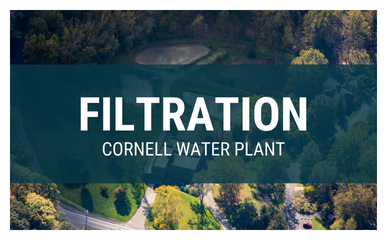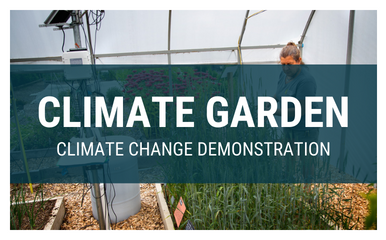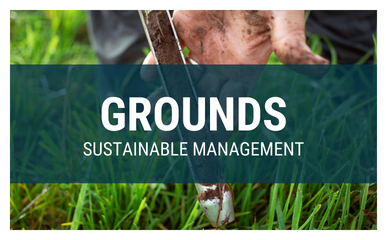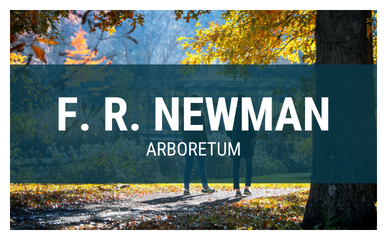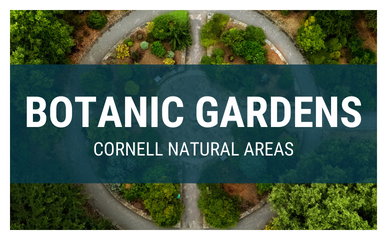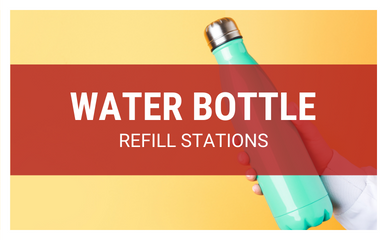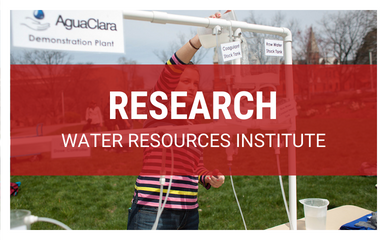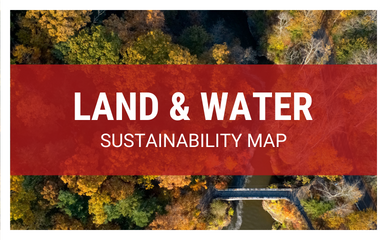Land & Water
Our campus is designed and managed to protect a diverse, resilient, and beneficial set of natural systems for the enjoyment of people and maintenance of key ecosystem services.
Take Action on Campus
Water Conservation
Only a small percentage of earth’s water is freshwater available for human use. Water scarcity can affect human health, wildlife and ecosystems. Wise water use can decrease the energy needed to treat and transport water and ensure there is enough fresh water for future generations.
Wise Water Use:
- Turn off the tap: Turn off water while you are brushing your teeth and soaping up your hands during hand washing.
- Reduce shower time: limit showers to five minutes or less
- Only run the dishwasher when it is full.
- Water plants with a watering can instead of a hose. Time watering for the cooler parts of the day, in the early morning and late evening, to minimize evaporation
Additional Ways to Take Action on Campus
-
Refill a reusable water bottle from one of the hundreds of refilling stations
-
Spend time outside as part of NatureRx by walking the Sustainable Landscapes Trail
-
Learn about the mobile solar grounds trailer powering electric landscaping equipment for our staff
-
Other Campus Work: The Peterson Parking Lot finished in 2018 features radical sustainable land and water design integrated with improved parking. The Carbon Sequestration Working Group is examining the potential for Cornell-lands to sequester carbon to reach our neutrality goal by 2035
Sustainable Cornell Land & Water Initiatives
From our campus water filtration plant to the many natural lands, forests, and landscaping sites managed by campus partners, sustainable land & water planning is at the forefront of our campus experience and its natural beauty
Participate in Campus Programs
Walk the Sustainable Landscapes Trail and get outside for your wellness prescription to spend time in nature. With 1,000s of acres of managed land on campus, you can find a quiet space to rest and reflect, or study and research. Don't forget to fill up your water bottle at one of our clean refilling stations!
Quick Facts about Cornell Land & Water Sustainability
- Grounds staff use a mobile solar trailer to power fossil-fuel-free landscaping equipment.
- Water use has dropped 25% since 2005, with 116.5 million gallons conserved in the last year alone.
- Voted the #1 most beautiful college arboretum, the F. R. Newman Arboretum is a place of beauty and provides for the scientific study of a diversity of trees and shrubs. Visitors can learn about and enjoy native species as well as species imported from similar climate zones around the world.
- 21% of campus grounds are maintained as organic spaces. The Grounds Dept. follows Integrated Pest Management (IPM) procedures to maintain the campus landscape. To control insects, weeds, and plant diseases that threaten lawn, flower, shrub, and tree species, IPM uses a holistic approach that includes many cultural pest control techniques including naturalized landscape design, emphasizing the diversity of species, use of hearty, disease and pest-resistant varieties, and mulching, reducing harmful chemical pesticide use wherever possible.
- 79% of campus grounds are maintained using low or no pesticide management, with the intent to approach 100%. This number is on the rise as the University tests and implements new procedures every season which reduces reliance on traditional chemical management. Both the Grounds Department and Cornell Botanic Gardens implement IPM practices.
- Prioritizing soil remediation to improve land health during and after construction. Construction projects can disrupt soil and land health. Cornell focuses on long-term soil remediation after construction. It is possible to not only reduce harm, but improve the chemical, biological, and physical properties of soils, thus allowing for improved plant growth. Campus partners have been implementing soil remediation since 2003. Examples include structural soil and turf on Tower Road and the Green Roof on Fernow.
- Living laboratory stations like the Sustainable Landscape Trail and Climate Demonstration Garden provide hands-on access to sustainability learning for 1,000s of students each year.

